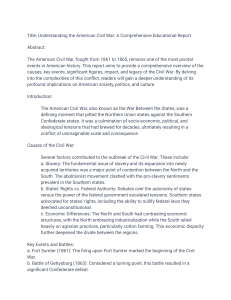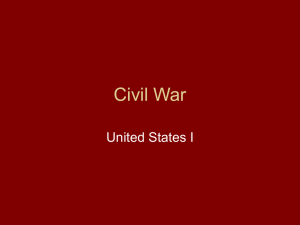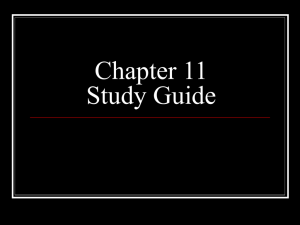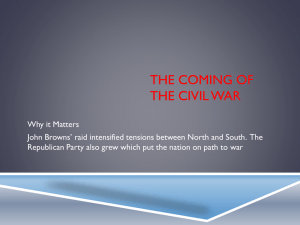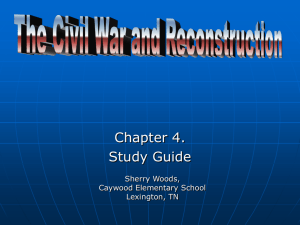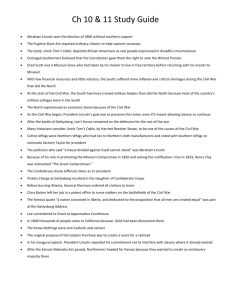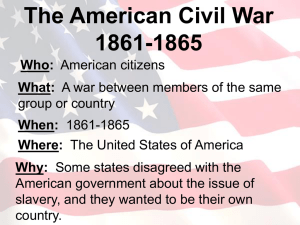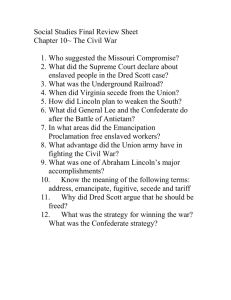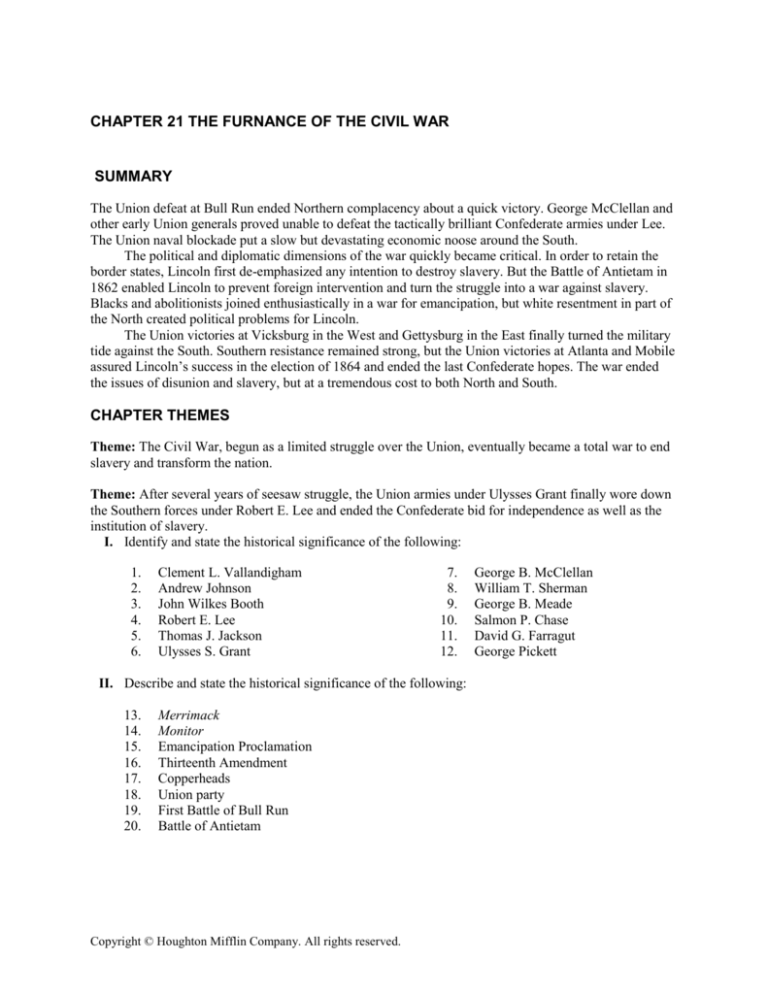
CHAPTER 21 THE FURNANCE OF THE CIVIL WAR
SUMMARY
The Union defeat at Bull Run ended Northern complacency about a quick victory. George McClellan and
other early Union generals proved unable to defeat the tactically brilliant Confederate armies under Lee.
The Union naval blockade put a slow but devastating economic noose around the South.
The political and diplomatic dimensions of the war quickly became critical. In order to retain the
border states, Lincoln first de-emphasized any intention to destroy slavery. But the Battle of Antietam in
1862 enabled Lincoln to prevent foreign intervention and turn the struggle into a war against slavery.
Blacks and abolitionists joined enthusiastically in a war for emancipation, but white resentment in part of
the North created political problems for Lincoln.
The Union victories at Vicksburg in the West and Gettysburg in the East finally turned the military
tide against the South. Southern resistance remained strong, but the Union victories at Atlanta and Mobile
assured Lincoln’s success in the election of 1864 and ended the last Confederate hopes. The war ended
the issues of disunion and slavery, but at a tremendous cost to both North and South.
CHAPTER THEMES
Theme: The Civil War, begun as a limited struggle over the Union, eventually became a total war to end
slavery and transform the nation.
Theme: After several years of seesaw struggle, the Union armies under Ulysses Grant finally wore down
the Southern forces under Robert E. Lee and ended the Confederate bid for independence as well as the
institution of slavery.
I. Identify and state the historical significance of the following:
1.
2.
3.
4.
5.
6.
Clement L. Vallandigham
Andrew Johnson
John Wilkes Booth
Robert E. Lee
Thomas J. Jackson
Ulysses S. Grant
7.
8.
9.
10.
11.
12.
II. Describe and state the historical significance of the following:
13.
14.
15.
16.
17.
18.
19.
20.
Merrimack
Monitor
Emancipation Proclamation
Thirteenth Amendment
Copperheads
Union party
First Battle of Bull Run
Battle of Antietam
Copyright © Houghton Mifflin Company. All rights reserved.
George B. McClellan
William T. Sherman
George B. Meade
Salmon P. Chase
David G. Farragut
George Pickett
Chapter 21 The Furnace of Civil War, 1861–1865
Copyright © Houghton Mifflin Company. All rights reserved.

